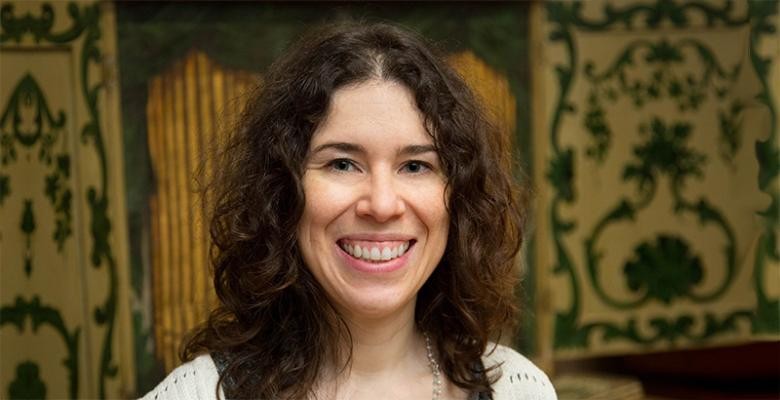Music and Madness Course Plumbs Rhythms of the Mind

Courses on disorders of the mind aren’t just the purview of physicians and psychologists. This past spring, Carmel Raz, a post-doctoral fellow in Columbia’s Society of Fellows in the Humanities, taught a seminar to Columbia undergraduates called “Music and Madness.”
The course covers dancing manias, trances, melancholy, musical savants, music therapy, and even Beatlemania. (For those too young to have experienced it firsthand, a quick visit to YouTube will illustrate the characteristic screaming and fainting of teenagers when the Fab Four made their debut in the early 1960s.)
“Music has the ability to change us,” said Raz. “It can affect us emotionally and physically.” Her class explored music as simultaneously a cause, symptom and a treatment for madness, with themes ranging from the use of music in religion to musically induced trance states and the transformative powers of music therapy.
The Society of Fellows, based at the Columbia’s Heyman Center, is comprised of up to eight postdoctoral fellows in the humanities at a time. They come to the University to research, teach, and collaborate with scholars in various departments. “The program has been an absolute dream. It has profoundly altered who I am as a scholar and a person,” said Raz, a music theorist who in the spring finished up her third and final year as a fellow.
She said, “Being exposed to ideas from a variety of disciplines has given me an invaluable perspective on historical, philosophical, and methodological issues at the very core of my work.”
“Music has the ability to change us, it can affect us emotionally and physically.”
Raz earned her master’s in composition from the University of Chicago and her Ph.D. in music theory from Yale. She also holds a degree in violin performance from the Hochschule für Musik in Berlin. Her research focuses on the 18th and 19th centuries, and specifically the impact of various theories of physiology and cognition on musical works, aesthetics and instrument design. Before turning to academia, she was a composer and violinist, and has been featured as a chamber musician at Carnegie Hall, the Kennedy Center, and various international venues.
“Music can excite and transport you. It can also calm you down and bring you back into yourself,” she said. “So it can cause you to lose yourself or find inner peace.” At one class session, students studied how different communities used sound to portray melancholy, focusing on musical traditions from Renaissance England and Ottoman Turkey.
The class also explored auditory hallucinations such as “ear worms,” the compulsive internal repetition of a catchy melody in your mind, and tinnitus, a medical symptom that involves the perception of a ringing in the ears. These disorders help us recognize the central role our mind plays in the perception of sound, she said.
Her students were shown movie clips that exemplified the power of music, such as the recent Pixar film Coco, which depicts how music can activate long-submerged memories. In discussing the intersection between music and violence, Raz screened excerpts from the 1971 dystopian movie A Clockwork Orange, as the main character of Alex is subjected to aversion therapy while listening to the music of Beethoven, his favorite composer.
“Sound doesn’t leave traces, but it can disorient and harm people,” Raz said. For example, she said that it’s not unusual for loud music to be blared to destabilize entire populations in conflict areas, or in torture sessions to cause sleep deprivation in prisoners.
Yet music also has the power to help people with dementia and other ills, she added. “It is well known that some people who are no longer verbal can sing along if they hear a song that they knew from childhood.”
Thanks to a course development grant from Columbia’s Center for Science and Society, which is led by history professor Pamela Smith, Raz was able to bring in three music therapists from New York University’s Nordoff Robbins Center, who demonstrated how they use music to treat children with autism, as well as adults with dementia and patients with various forms of trauma.
In July, she began leading a research group called “Histories of Music, Mind, and Body” at the Max Planck Institute for Empirical Aesthetics in Frankfurt. In her approach to music and madness, Raz hopes that her students come away with “a richer understanding of why music is such an incredibly powerful part of our lives.”